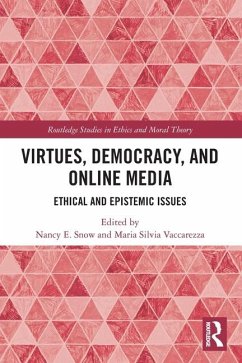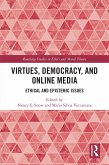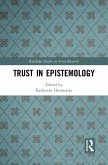This book addresses current threats to citizenship and democratic values posed by the spread of post-truth communication. The contributors apply research on moral, civic, and epistemic virtues to issues involving post-truth culture.
The spread of post-truth communication affects ordinary citizens' commitment to truth and attitudes toward information sources, thereby threatening the promotion of democratic ideals in public debate. The chapters in this volume investigate the importance of helping citizens improve the quality of their online agency and raise awareness of the risks social media poses to democratic values. This book moves from two initial chapters that provide historical background and overview of the present post-truth malaise, through a series of chapters that feature mainly diagnostic accounts of the epistemic and ethical issues we face, to the complexities of virtue-theoretic analyses of specific virtues and vices.
Virtues, Democracy, and Online Media will be of interest to scholars and advanced students working in virtue ethics, epistemology, political philosophy, and media studies.
The spread of post-truth communication affects ordinary citizens' commitment to truth and attitudes toward information sources, thereby threatening the promotion of democratic ideals in public debate. The chapters in this volume investigate the importance of helping citizens improve the quality of their online agency and raise awareness of the risks social media poses to democratic values. This book moves from two initial chapters that provide historical background and overview of the present post-truth malaise, through a series of chapters that feature mainly diagnostic accounts of the epistemic and ethical issues we face, to the complexities of virtue-theoretic analyses of specific virtues and vices.
Virtues, Democracy, and Online Media will be of interest to scholars and advanced students working in virtue ethics, epistemology, political philosophy, and media studies.








